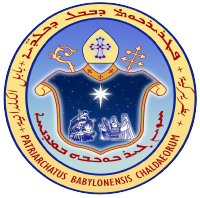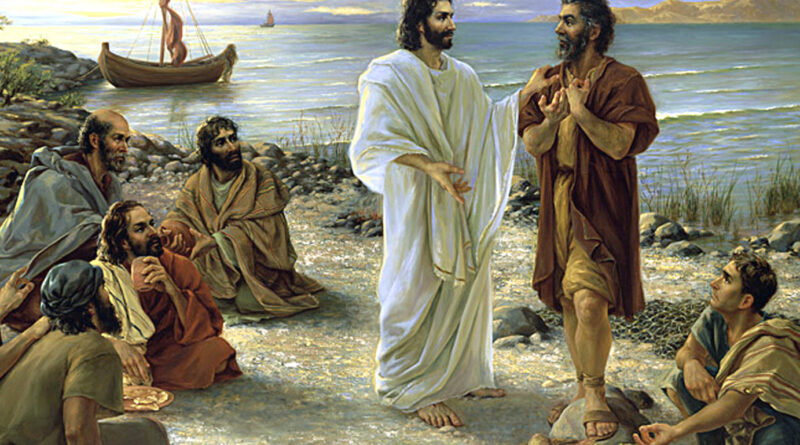Catholic Identity
| Examining peace from the gospel’s perspective on power | View Full Article > | |
Examining peace from the gospel’s perspective on power
By Amer Youhanna, Project Officer, Catholic Engagement, Catholic Mission and Identity, at Melbourne Archdiocese Catholic Schools (MACS).
As we come to the end of the year and reflect on our successes, we often think about the stumbling blocks we have faced along the way. While we may be aware that leading is not without hurdles, Matthew’s Gospel offers some insights into how, this 2,000-year-old challenge remains relevant today.
In Matthew 16: 13–23, Jesus gives Simon a new name – Peter, the rock – and with it, the authority to lead. Yet, in the same breath, Peter is rebuked and called ‘Satan’ (stumbling block). This dramatic shift raises profound questions about the nature of power and its impact on human behaviour.
Reflecting on this passage, it’s clear how power can quickly distort our understanding. Peter, at one moment praised as the ‘rock’ of the Church, suddenly becomes a stumbling block to Jesus’ mission.
This transformation is a stark reminder of how easily we can lose sight of our true purpose when power blinds us to the needs for those over whom are given authority.
Peter’s situation resonates with us today. In the time of Jesus, Jews were living under Roman rule, awaiting a Messiah to lead them to freedom. Peter’s expectations, shaped by his context, clashed with the reality of Jesus’ mission as a servant leader. Similarly, our own understanding of Christ is shaped by tradition, making it easy to judge Peter’s actions without fully appreciating his perspective, his context.
Peter’s struggle, brought about by this clash, highlights a common human tendency: the desire to fit divine action into our preconceived notions of who Christ ‘should be’ for us.
Just as Peter tried to dictate what the Messiah should be and do, we often approach our faith with a sense of familiarity and demand that leaves little room for challenge. As with Peter, we are tempted to tell God, through Jesus, how his Kingdom should unfold.
Transformative power
Jesus redefines what it means to be a triumphant Messiah, emphasising that the power he speaks of should lead to inner transformation and service of others, not dominance. The power he offers is not about ‘… clinging to our own positions and convictions, [rather] we choose instead to welcome opportunities to listen to others and understand what they think and why’ (ACBC 2024).
In contexts where power often equates to control and suppression, Jesus’ message is revolutionary: true leadership lies in nurturing change in the other, from within, a process requiring humility and patience.
With this in mind, it is important to consider how authority and power are exercised, experienced and taught within our school environments. While students may lack the means to implement changes directly, they possess a unique form of power – the power to influence, shape realities and create shared practices among their peers.
This notion of power has been studied even in postmodern philosophy, with Michel Foucault reflecting that power ‘… produces reality, it produces domains of objects and rituals of truth’ (Foucault 1975). This brings to mind the significance of student leadership roles and their vital contribution to the school community.
Power in the Kingdom of God
Jesus’ invitation to reconsider power subtly reveals itself in his teachings on the Kingdom of God, where the familiar is turned on its head (Mt 20:16; Mt 5: 44; Mt 20: 26–27; Lk 6: 20).
This Kingdom is not a realm where peace is enforced, but where peace flows through us as its bearers. It is not about compelling others to simply give; rather, it is about an invitation, a call, to give freely, motivated by love and compassion.
Here, love of neighbour transcends the command ‘to love your neighbour as you love yourself’ (Mk 12: 31). The command becomes a living, breathing message that infuses our lives with purpose. In this Kingdom, power is not about control, but about the Holy Spirit guiding our actions and shaping our decisions.
‘The Church must be a place of mercy freely given, where everyone can feel welcomed, loved, forgiven, and encouraged to live the good life of the Gospel’ (Francis 2013, n. 114). Here we find the source of the Church’s power: in the love that unites her to Christ and opens her to the world.
When we see challenges of the diminishing authority of the Church, particularly in Western society, some might find this very confronting. But perhaps this loss is a hidden blessing and a moment of hope, a gentle reminder that such power was never meant to dwell within the Church.
The gospel teaches us that true power is not found in dominance or authority, but in the quiet strength of love, humility and the Spirit’s guidance. Losing what was never ours to keep might be the Church’s path to reclaiming its true mission, and the power that produces. Pope Francis in his Magisterium has mentioned this many times (Francis 2013).
The Church’s power lies in the quiet, enduring witness of faith, not in political manoeuvring or the use of temporal power. She is called to be humble, to serve and to love.
Reflecting on power in our school communities
This call to rethink power, based on Jesus’ teaching, extends to leadership within our school communities. In what ways does leadership in our school:
- reflect the gospel and the teachings of Jesus?
- empower others and invite action?
- cultivate the potential in each person to lead within their sphere of influence?
- exhibit the willingness to change course when needed, with the humility to admit when things aren’t working?
- embody the words that we express?
In embracing these questions, we create a leadership culture that not only reflects the gospel but also inspires growth, empowerment and authentic transformation within our school communities.
References
Australian Catholic Bishops Conference (ACBC) 2024, Truth & Peace : A Gospel Word in a Violent World, Social Justice Statement 2024–2025, ACBC, ACT, Australia, accessed 31 October 2024 https://drive.google.com/file/d/1gpmTG-I2XDI8soIyyF7UuFsYZ5K0MzRu/view.
Foucault, M 1975, Discipline and Punish: The Birth of the Prison, Vintage Books, New York, accessed 31 October 2024 https://monoskop.org/images/4/43/Foucault_Michel_Discipline_and_Punish_
The_Birth_of_the_Prison_1977_1995.pdf.
Francis (Pope) 2013, Evangelii Gaudium (On the Proclamation of the Gospel in Today’s World), The Holy See, accessed 31 October 2021 www.vatican.va/content/francesco/en/apost_exhortations/documents/papa-francesco_esortazione-ap_20131124_evangelii-gaudium.html.
Amer Youhanna can be contacted on 9267 0228 or via ayouhanna@macs.vic.edu.au.
Image: Humanity of Christ, Vardaan Kapoor, St Peter’s School, Epping, Creative Arts Exhibition, 2024




